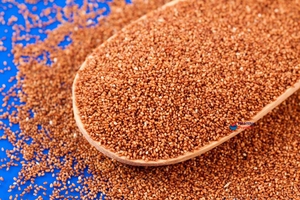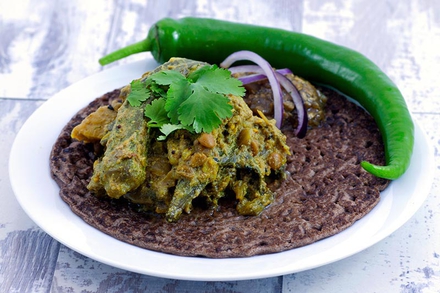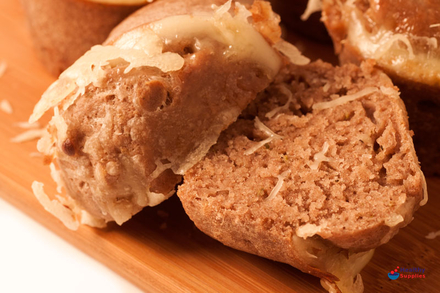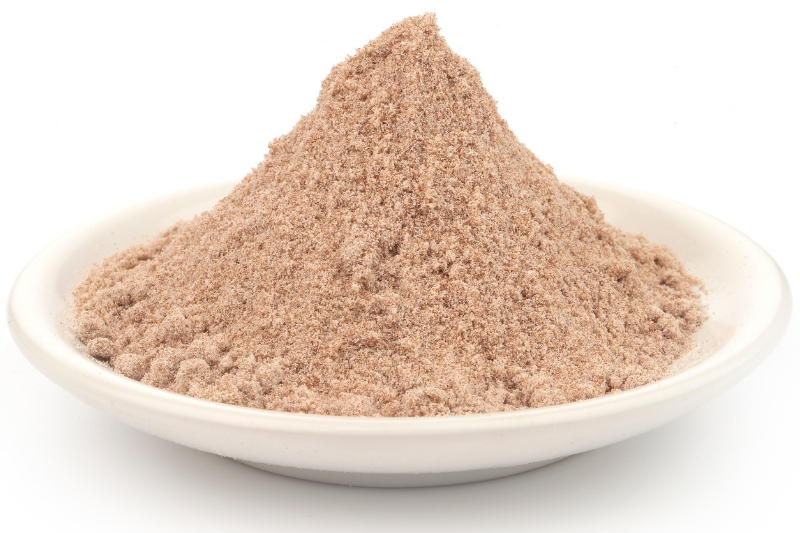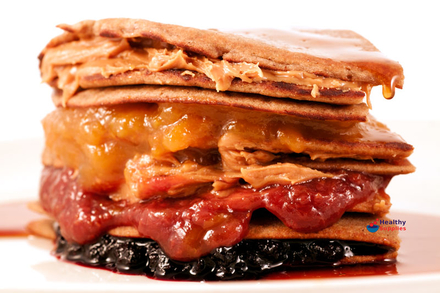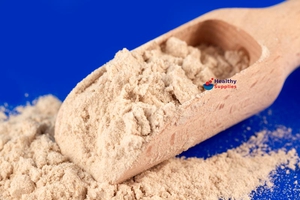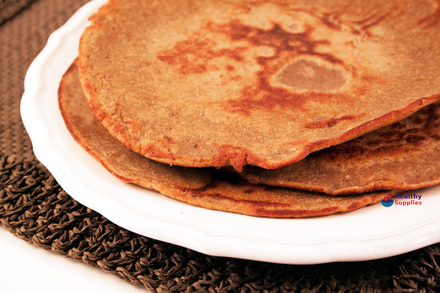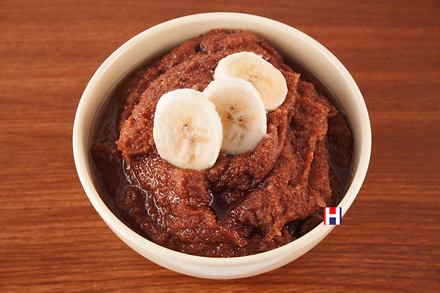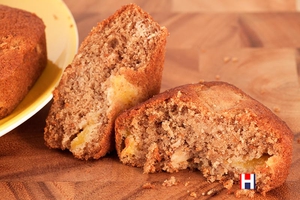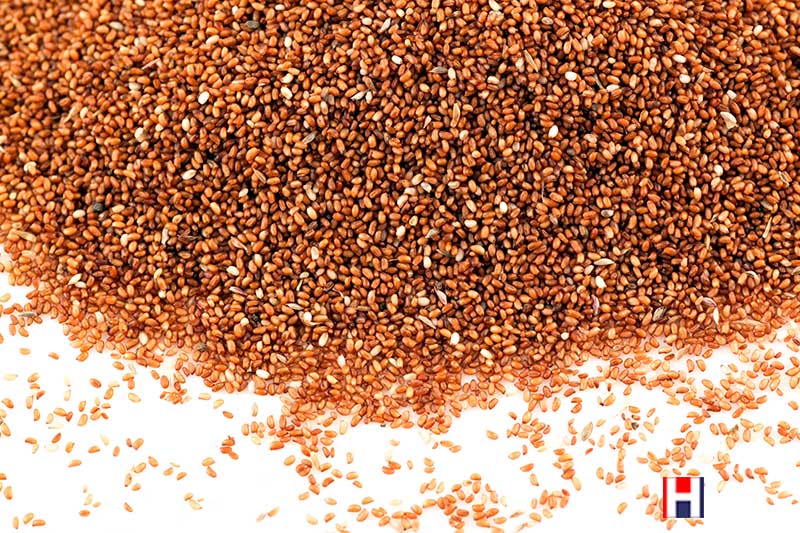Ten amazing facts about Teff
Teff is absolutely tiny, with a diameter of less than a millimetre, and the Ethiopian word teffa, which gives it its name, accordingly translates as ‘lost’!
It’s a staple food in the Horn of Africa, and has many culinary uses, sharing the versatility of cereals like millet and corn. Because it’s so small, however, it cooks much faster, which cuts down on cooking time and therefore saves valuable fuel.
But what is teff? And what are the health benefits of teff?
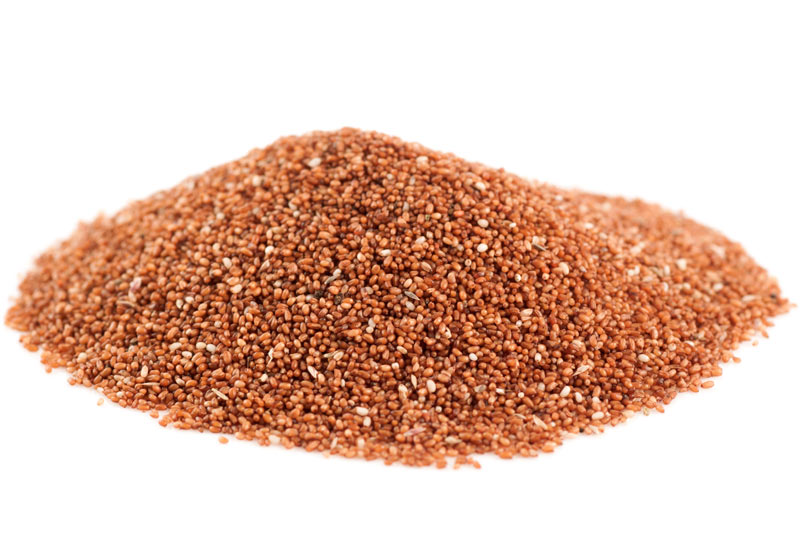
Teff plays an important part in the history of our species, as it was one of the very first plants cultivated by humans – this began in Eritrea and Ethiopia on the east coast of Africa, as early as 4000 BC. It’s thought of as a grain, but teff is actually the seeds of an annual grass plant. There are two varieties of teff – brown and white.
Injera is a flatbread which tastes slightly sour. It’s made in a process that involves fermenting a mixture of water and teff flour by harnessing the power of naturally-occurring yeast and bacillus bacteria. this is left for a few days before being poured onto a heated surface and cooked into flatbreads. Their texture makes them ideal for eating with food cooked in sauces. You can see a recipe for a basic version of injera here.
Teff has a very high mineral content
Teff is very rich in iron and manganese, and also contains phosphorous, magnesium, calcium, zinc, sodium and potassium. Most of these are present in higher concentrations in teff than in other common cereals like corn and wheat.
Brown teff has more iron and calcium than white teff, which, on the other hand, contains more copper.
Teff is a superb choice for coeliacs, because, quite apart from its excellent nutritional qualities, it’s also naturally gluten-free.
This study of gluten-intolerant patients in Holland found that those using teff reported a significant reduction in symptoms, possibly related to a reduction in gluten intake or to an increase in fibre intake.
Teff is an excellent source of protein
Teff is one of the most perfect plant-based sources of protein available. It has more than 12g of protein per 100g, and contains all the essential amino acids humans need.
Our bodies use protein to make new cells, repair damaged ones, and to regulate general physical development throughout our lives.
It's a very versatile ingredient
Teff can be used in a huge number of ways. You can make bread, biscuits, pancakes and muffins from teff, which imparts a mild flavour that’s been described as ‘nutty’ and ‘molasses-like’. It’s very good to use in conjunction with other flours, such as almond flour or buckwheat flour.
The flour can also be used as a thickener for sauces, soups and stews.
Most grains don’t contain Vitamin C, but teff is absolutely packed with it. Vitamin C is needed to keep our immune system healthy, and helps to manufacture white blood cells, which are crucial for fighting infection.
It’s also essential to make new cells, keeping organs healthy, maintaining blood vessels and ensuring muscle tissue is working properly.
Teff flour is 12.2% fibre, which is almost twice as much as in oat flour, and more than five times the amount in wheat flour. A diet that’s high in fibre has been shown to lead to a lower risk of diabetes, heart disease, high blood pressure, stroke, constipation and bowel disease. It also promotes digestive regularity and absorption of nutrients, and it helps clear accumulated waste and toxins out of the body.
Teff makes a fantastic porridge, which is creamy and filling, and tastes mild and subtly sweet. It can be topped with your favourite nuts, fruit or syrup, and is lovely and quick to prepare.
Because of the fibre content, teff porridge will keep you feeling full for a lovely long time. Why not have a go at making this delicious Almond & Cinnamon Teff Porridge?
Teff is superb for stomach health
Researchers at Cornell University have discovered that teff is one of the finest foods you can eat for maintaining a healthy stomach. Their findings showed that eating teff enhances the nutritional value of iron and zinc and has an extremely beneficial effect on the gastrointestinal tract by improving its capability to absorb nutrients essential for health and wellbeing.
Come and have a look at our large range of Teff here!

